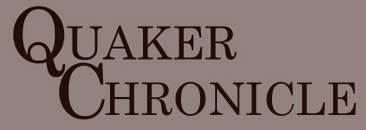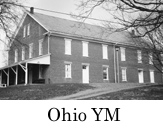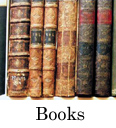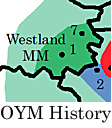The following is the entire text of this biography:
John W. Smith
A visitor at Ohio Yearly Meeting in 1880 might have noticed sitting in the second gallery a Friend of medium height, stockily built and his hair fringed with gray. Had he seen him walk into meeting, he might have been impressed with his firm and dignified bearing. As the meeting progressed, he would become aware that this man was one of commanding influence in the concerns coming before it; that he was calculated to be a leader, though he would probably be the last to make such a claim for himself. In almost every Friends meeting, and in fact in communities the world over, we find such men, who seem to press their personality on the neighborhood, and become the moving force in all its activities. Probably it is well that it is so, for there is no harm in leadership if those thus qualified are under the influence of the Great Master, and anxious above all things for the advancement of his Kingdom in the earth.
John W. Smith was born in 1824 in Stillwater neighborhood and was the son of Robert H. and Elizabeth Williams Smith. His grandfather, Thomas Smith, had come from Virginia early in the century with his family, and settled on the farm just north of Stillwater Meeting House. The brick house built thereon in 1808, now considerably over one hundred years old, seemed destined to become a neighborhood centre and remains so even down to the present time, being now in possession of James Walton [Note: this house is currently (2011) the old section of the Walton Home].
[Ed. Note: Meyers here inserted a section on Robert H. Smith, which is posted separately on his page.]
John W. Smith was the oldest son of the family, and of serious deportment from his youth. He married on Fourth Month 27th, 1848, Maria Hall, daughter of Nathan Hall of Harrisville, prominent in the councils of Ohio Yearly Meeting during the middle of the century. This took him to that neighborhood to settle, and the home thus started continued to be his for nearly half a century, but death took away his wife in middle life in 1867. His eldest son, Walter, was at the Boarding School at the time, and returning after his mother's funeral was taken suddenly ill and died in a very short time. He was a strong, fine looking young man; probably it was the same disease that has since been known as influenza. The only daughter was much of an invalid and lingered along for a few years. The other son Nathan most of us well remember as clerk of the Yearly Meeting and in other administrative capacities. About the time that Maria Smith died, her cousin Jesse Hall of the same neighborhood also passed away, leaving a family of six children, some of them quite young. A feeling of near sympathy in their bereavement existed between John W. Smith and the widow, Edith Hall, which soon ripened into affection, and she and her younger children were thus taken into the Smith home, John W. Smith exercising a fostering care over them, and they in turn retaining a deep filial respect for him, the same as to their natural father, which was strengthened as old age approached. One who visited in the family said the only appearance of there being two families was that two of the boys having the same name, they were referred to as Nathan R. and Nathan P. Edith Smith survived her husband quite a number of years, being the last of the Thomas family, who were also quite numerously represented in that vicinity.
As might be expected with their predilections and convictions, the home here maintained was typical of Friends' homes at that time. A large old-fashioned brick house, the living room on the left of the entrance with its old-fashioned fireplace, while on the other side of the hall was the neatly kept parlor, which was the scene of many happy gatherings. While the Yearly Meeting was held at Mt. Pleasant, and Friends had no boarding school to go to for entertainment, it seemed a center of hospitality to those attending, much the same as the residence of Thomas Kite in Philadelphia, and later the home of Samuel Walton, at Barnesville. One evening, our friend Elizabeth Evans, a minister from Philadelphia, looked in on the gathered company, and remarked what a happy group they were, as they sat around in pleasant conversation. There was no place here for amusements, and no doubt there were occasions when the company settled down in silence and had acceptable worship, the forerunners of our present evening meetings at the boarding school during Yearly Meeting. There were other Friends in the neighborhood who also entertained many Friends, but we can imagine, with the whole yearly meeting to accommodate, some of the homes must have been quite crowded. These extensions of hospitality are largely responsible for the loving fellowship that has always been a marked feature of Ohio Yearly Meeting.
John W. Smith and others of his generation always showed a deep interest in the welfare of their meeting at Harrisville, and there always seemed to be about it a feeling of love and subdued solemnity, which extended out into the neighborhood, affecting the conduct of the children, so that strangers were often impressed with the docility of their behavior. Our Friend was not a recommended minister, but he frequently appeared in brief reverent exhortations, and as an experienced Elder watching over the flock for their good, and disposed to encourage any sincere appearances in the ministry on the part of the younger members. Nor was his interest any less marked in seeking the best welfare of the superior meetings. Short Creek Quarterly Meeting was held at that time at Flushing in the winter. They had their pikes, but the improved roads, as we now know them, did not exist then; yet they were seldom so bad that John W. Smith and his family did not find their way thither, a distance of twelve miles. When Yearly Meeting came, as long as health permitted, they were in attendance. The Smiths were a family of clerks. Two brothers served respectively in Philadelphia and Ohio Yearly Meetings in that capacity, and John was clerk of the Select Yearly Meeting. A friend has remarked with what ease to themselves, he and his son Nathan seemed to bear the responsibilities of their positions, the latter being comparatively young when appointed.
Our Friends schools always appealed strongly to him. He and his wife twice occupied the position of superintendents at the Boarding School, both at Mt. Pleasant and at Barnesville, and he remained an active member of the committee up to the time of his last sickness, being especially concerned that our peculiar testimonies should find a place there and be emphasized in the management. His service as a member of the committee required the sacrifice of no little time and strength, which apparently were ungrudgingly given on his part. When circumstances permitted without detriment to the Friendly interests of the school, he was quite willing to take advantage of outside sources of education, and through his influence they secured the celebrated scientist, John Brashear, of Pittsburgh, to explain the construction of his great telescopic lens.
Not less was the welfare of the primary schools the object of his concern, and the younger generation well remembered when "Uncle John" visited the schools as a member of the committee, and the interest he took in their progress. More than other sections of the Society at that time the Friends of Short Creek Quarterly Meeting manifested a zeal for keeping up these schools, and one report to the Yearly Meeting showed that out of about 125 school age children more than a hundred were at that time receiving their education in Friends schools, but it was a great source of discouragement to John W. Smith, that after all the efforts that had been made in this direction, the reports from other places still showed so many parents patronizing the public schools. In most neighborhoods at that time the number of Friends children was sufficiently large to maintain a school; while fully approving the advantages of the public school system to the country at large, and in an educational way we must admit these often were in advance of our own, yet it was not within their province to inculcate those principles we advocate or give the guarded religious education which Friends have generally insisted upon.
It is likely that John W. Smith was one of the better educated men in Ohio Yearly Meeting. He surprised one young Friend when a committee was preparing epistles, by calling attention to a rather obscure rule in old fashioned grammar about when the speaker should introduce himself first, thus showing that he had not gone to school in vain. When epistolary correspondence was opened with the smaller bodies of conservative Friends, he was very careful in criticizing the epistles prepared, often going into a careful analysis of passages, showing where they did not comport with the received ideas of Friends. While earnest in maintaining his ground on such occasions, he was careful not to push his own views of procedure beyond the point which others could accept, although concerned that nothing should go forth in them that would compromise the principles of ancient Friends.
He remained up to the time of old age a very active opponent of the system of belief that came to be known as Gurneyism, yet he regretted very much the course of some very earnest Friends, who with their families, withdrew and set up separate meetings, only because they differed from other Friends, who were equally anxious to maintain Friends principles, because they did not approve of the same line of disciplinary procedure. Thus they deprived themselves of the opportunity to testify against error, and the sequel seemed to prove they had made a mistake, which some of them were favored to see, and those of the succeeding generation, again associated themselves with the main body of the Society. We have been told that the books put forth advocating such a course were particularly trying to our Friend, and he did not approve of reading them.
He was a warm friend of prohibition, voting for that party when it required considerable moral courage to do so. Sometimes he inclined to attend public meetings held to advance the interests of that party, but felt restrained from doing so, lest he should compromise himself with regard to other testimonies of our society. On one occasion, a young Friend having gone to their house to obtain their signatures to a petition on some phase of the liquor question, Edith Smith felt a hesitancy about it, when John interposed with "Edith is willing to have the wives of drunkards protected from its ravages," and her name soon went down.
There were some valuable Friends around Philadelphia at this time who gave cause for anxiety as to how far their course was calculated to give encouragement to the innovations being introduced at that time. John W. Smith was much pleased when Samuel Emlen came to Ohio Yearly Meeting in 1893, to find him much more satisfactory than his fears had led him to expect, in fact there seemed nothing to object to.
J.W. Smith at one time referred to a time in his youth when Benjamin Hoyle had spoken in a sermon of the manner in which scripture passages had their meaning opened up to him while he was at work in the field, which had made a great impression on him, and he now commended this generation to seek for inspiration in the same way.
It is a source of regret that there is not more of written record concerning our Friend's experiences during active life; but after his death, the family prepared a short account of his last illness, which is of so much value that it seems in place to introduce it as part of this sketch [Note: it is included as a separate link on this website]. He says he made many mistakes and had not been as faithful as he should have been, and intimates a fear that sins of omission were greater than sins of commission; but the peaceful serenity of his long period of decline, which was not accompanied by very great suffering, was such as few are favored to witness on the approach of death, and seems a foretaste of the enjoyment of a happy immortality. |






